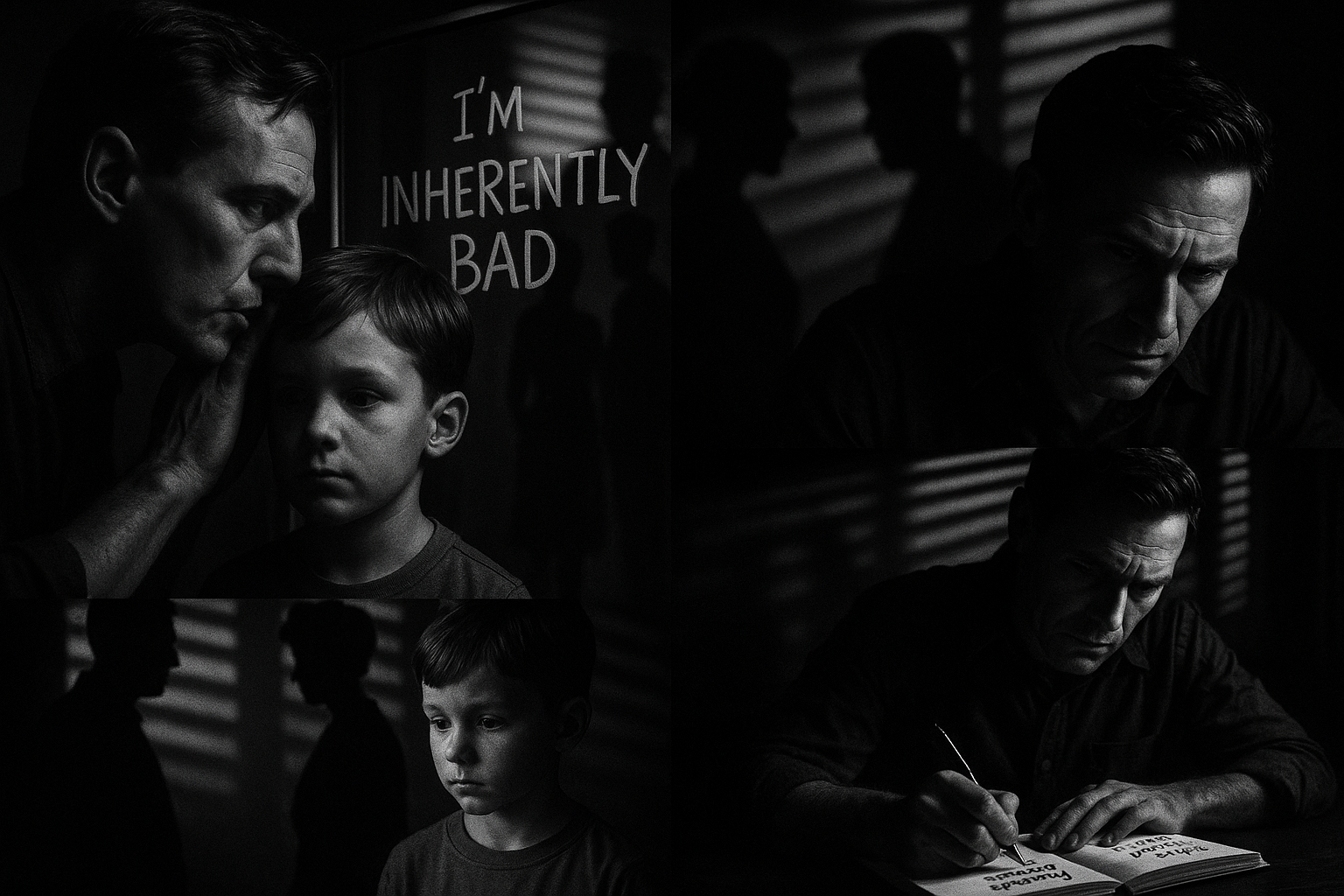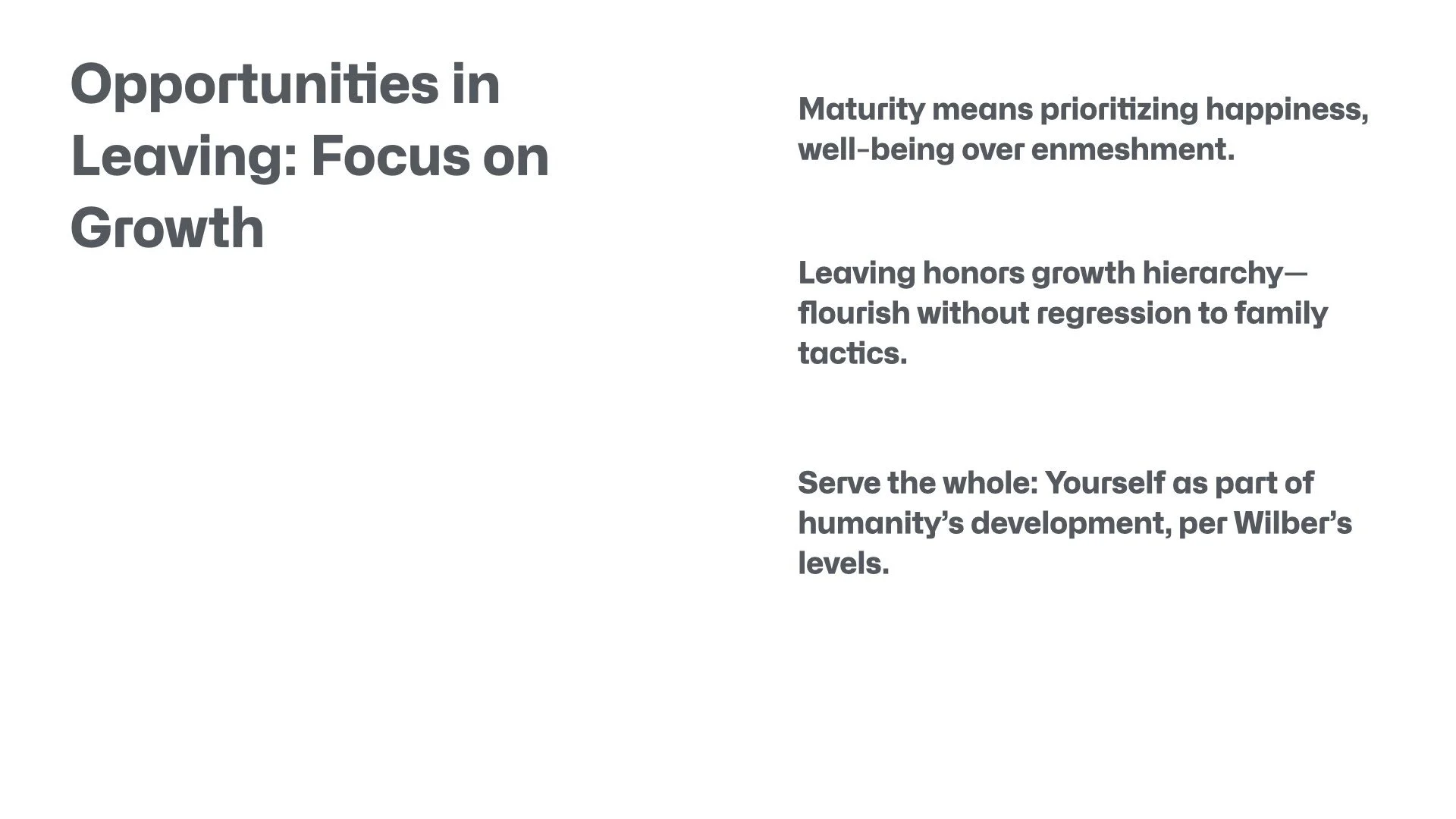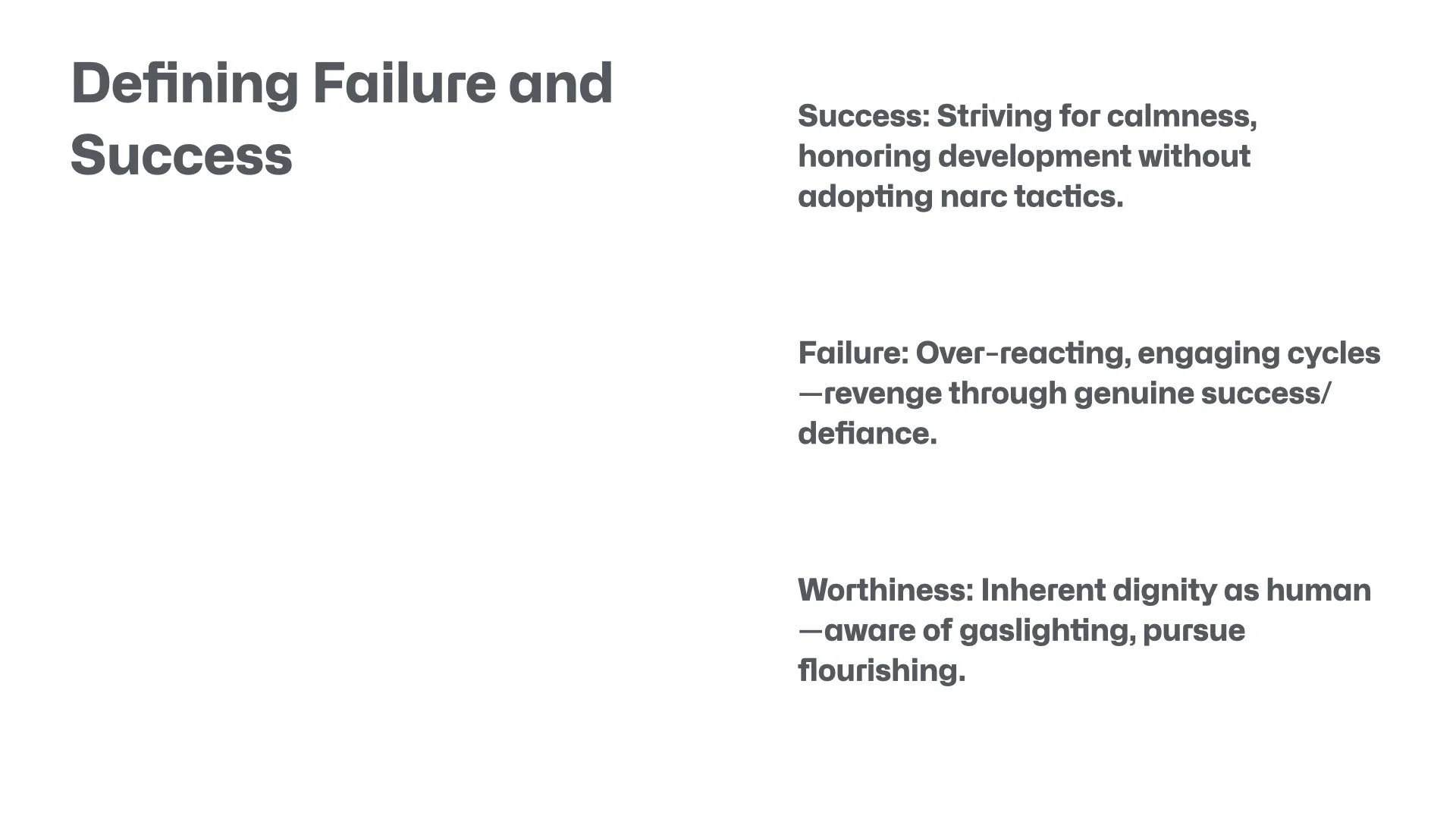Unraveling False Beliefs in Narcissistic Family Dynamics
Pathways to Differentiation and Healing
Have you ever felt enmeshed in narcissistic family dynamics, hindered by limited beliefs that prevent differentiation—a healthy sense of self that remains connected to family yet independent and grounded in authenticity? As a registered social worker and therapist in Toronto, Ontario, specializing in narcissistic abuse recovery and scapegoating roles, I am Blake Anderson. In this blog post, supplementing my YouTube video on false beliefs in dysfunctional families, we explore how these beliefs sustain toxic units and offer integral strategies for growth. For adult children of narcissistic or emotionally immature parents seeking scapegoat recovery in Toronto, this guide emphasizes agency and human flourishing.
Understanding Beliefs and Their Impact on Actions
Beliefs shape our actions. If insecurities, false beliefs, or limited beliefs drive us, our actions inherently reflect them. Often, these beliefs are not conscious; we may sense issues or insecurities, or experience negative self-talk in quieter moments. We sometimes suppress them to survive and function. Examples include the conviction that one deserves abuse or that all families merit preservation.
However, if a family is profoundly toxic and unhealthy, and despite repeated efforts to engage positively—reflecting on one's behavior and urging them to acknowledge theirs—they lack the capacity or willingness to recognize harmful actions, change becomes impossible.
I employ an integral lens from Ken Wilber, a philosopher and key thinker, utilizing his quadrants concept. When assisting individuals with narcissistic family dynamics, I consider the inner psyche (individual interiors) and the systemic perspective (family unit). This reveals how beliefs originate in the system yet manifest in personal interiors.
What belief from your dysfunctional family experience feels most limiting? Share in the comments.
Challenging "I Deserve This Treatment and I Am Inherently Bad"
One common belief is "I deserve this treatment and I am inherently bad," driving continued family involvement. These hidden insecurities sustain the dynamic, posing challenges to self-worth. We can counter this through affirmations and grounding in authenticity, but first, acknowledge these beliefs by documenting them and recognizing they likely arose early in life.
As children, we internalize such beliefs, accepting them as our identity. Yet, through therapy or introspection in adulthood, we discern they stem from the family of origin—perhaps a narcissistic or emotionally immature parent assigning roles based on their insecurities or false self. This perspective reduces personalization and clarifies why these beliefs once seemed logical.
Escaping "I Cannot Succeed Without My Family"
Another belief is "I cannot succeed without my family," rooted in the notion that survival depends on them. This traces to evolutionary origins: in tribal times, ostracism equated death. Thus, family rejection triggers survival instincts, potentially overriding rationality.
Upon awareness of this cultural and evolutionary conditioning, we realize adults possess choices and need not persist in the dynamic. Children lack such agency to escape toxicity, but adults do. Complications arise—reasons for staying, like ties to nieces or nephews—but if the family is truly dysfunctional or toxic (beyond minor disputes), departure serves wellbeing.
Each exposure to severe narcissism undermines growth; to honor one's growth hierarchy, limits or boundaries are essential. This decision often spans years of contemplation, varied approaches, reading, and self-reflection on communication, leading to acceptance of their limited capacity—they are not fully formed selves, exposing us to toxicity.
Per Sam Vaknin, such individuals convert others to internal objects or introjects, blurring self and external world, evoking psychotic elements. If we become mere extensions in their mind, non-conformity erodes self-worth; they fail to honor our complexity, demanding subjugation. Vaknin notes they introduce "death" to surroundings, necessitating limited or no contact for those with narcissistic personality disorder.
Departure honors personal growth hierarchy and the family's overall wellbeing.
How has evolutionary conditioning influenced your narcissistic abuse recovery? Let's discuss below.
Setting Boundaries and Accepting Reputation Impacts
Advancing requires accepting reputational hits from family or community perceptions. This proves difficult, as reputation matters, but defending against smears enmeshes further. Ultimately, self-worth prevails: if others demean, they offer no support.
Accept these definitions—perceptions of being "crazy," "difficult," or "ungrateful"—which exploit societal family values, weaponizing guilt and shame. Families know departure defies norms, questioning why one struggles when others appear fine.
Gaslighting, especially for scapegoats, is subtle: parents or siblings express "concern" about behavior, planting doubt to discredit truth-telling and reduce threats. Accepting this framing—wearing the "black hat" as in classic films—matters little if you know your goodness. We desire acceptance, but not at growth's expense; avoid defending to prevent deeper dysfunction.
For scapegoat recovery in Toronto, embracing labels stoically liberates—what label have you reframed?
Moving Beyond Roles and False Hope
Ties persist via false hope of change. For narcissistic styles or traits, modification is possible; for true personality disorder, per Vaknin, hope is minimal—malignant individuals lack concrete treatments, drive, or self-awareness. Future faking—promises unfulfilled—entrenches situations.
A truthful foundation about relationships and individuals aids progress; false hope ungrounds reality. Accountability efforts often fail.
Embracing Authenticity: Integration for Flourishing
Navigating means accepting "black sheep" labels amid societal bonds, yet yielding to guilt hinders freedom. Prioritize authenticity and growth.
This exploration addresses false and limited beliefs sustaining toxic dynamics. Challenging them fosters healthier paths, honoring your journey.
If family dysfunction or narcissistic abuse impacts relationships, explore my Scapegoat Recovery Course bundled with Design Your Personal Manifesto for healing and purpose-building. Learn more here.
If insightful for overcoming narcissistic family dynamics or scapegoat recovery in Toronto, share and subscribe for more. What's one takeaway you're applying? Comment below—have a great day!
















